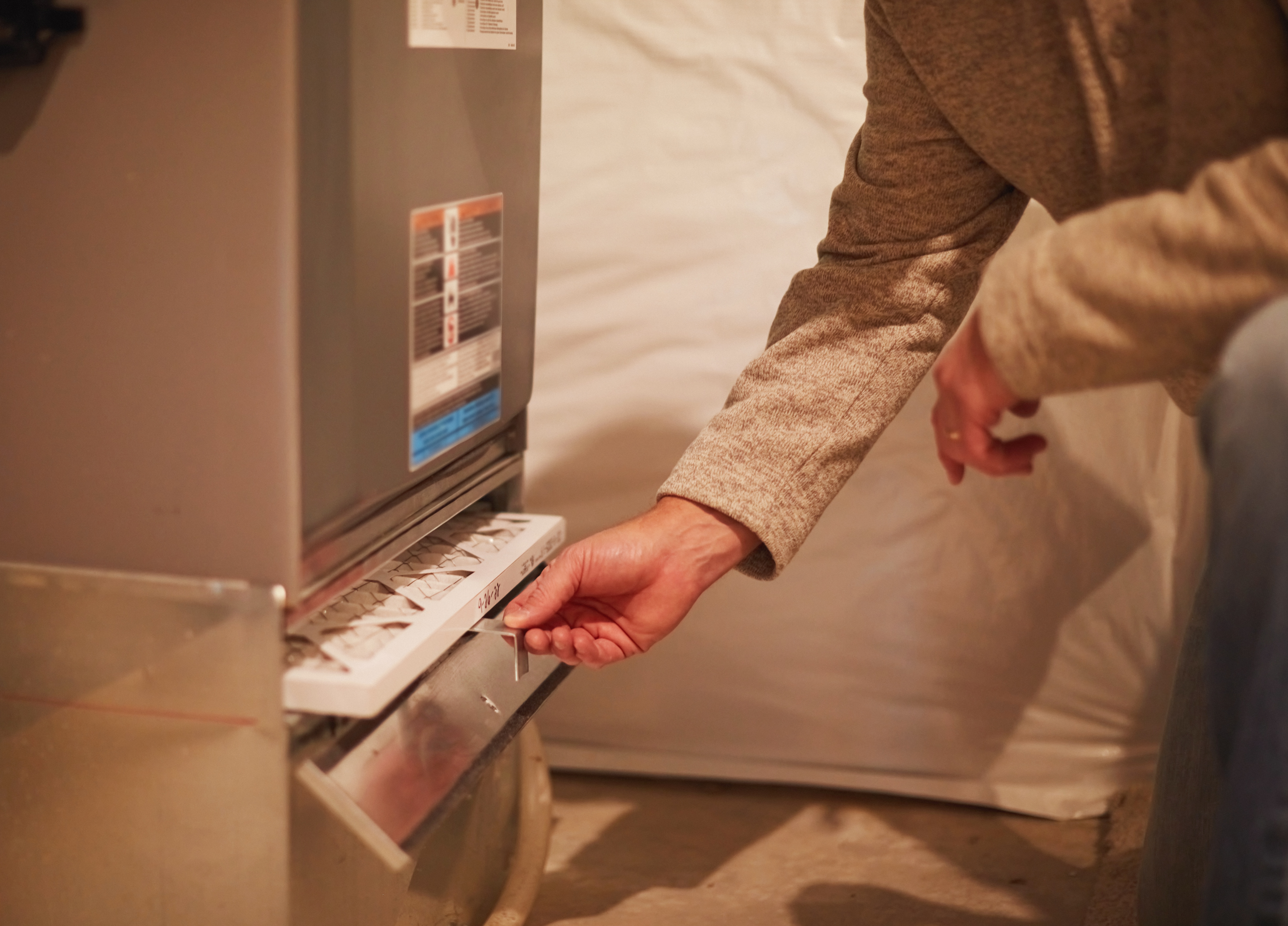
If your home has a central heating system, having it cleaned every year is essential. Cleaning the system is important as it can both help to prevent many potential issues and to ensure the system heats effectively. This is true both for furnaces and heat pumps. It’s always best to have the cleaning done sometime in autumn just to ensure that the system is ready whenever you finally need to turn it on.
Failing to have your heating system professionally cleaned and maintained can cause major problems and lead to expensive repairs. There are also some components that will limit how much heat the system produces or prevent the system from working at all if they get too dirty. To understand why cleaning your heating system is so important, here is an overview of the various components that can be affected by dust and debris and what problems it can lead to.
Dirty Flame Sensor
All modern gas furnaces have a flame sensor that acts as a safety measure to prevent gas from continuing to flow into the unit if the burners don’t light or go out for any reason. This sensor is a metal probe that carries an electrical current, and it works by sensing the heat coming from the burners.
The flame sensor is partly responsible for controlling the furnace’s internal gas valve. When the furnace needs to start, it first signals the electronic igniter to turn on and opens the valve so that gas flows to the burners and the furnace lights. If the flame sensor can detect the heat from the flames or the furnace doesn’t light, the sensor will then signal the gas valve to close. This is obviously important as an explosion could occur if gas continued to flow and fill up the combustion chamber.
The flame sensor needs to be cleaned yearly as it will slowly become coated in dust, soot, and grime. When this happens, it can insulate the sensor and make it impossible for it to detect the heat from the burners. As a result, the furnace will typically only light for a few seconds before automatically shutting off.
Dirty or Clogged Gas Burner Ports
Whenever a furnace sits for a long period without running, dust and debris can also collect inside the gas burner ports. It is also not uncommon for small spiders to spin webs inside the burner ports during the warmer months, which can also lead to the burners becoming clogged.
If the burner ports are completely clogged, no gas will flow out of them and some or all the burners may fail to light. If only a few of the burners are working, the furnace obviously will produce far less heat.
Clogged ports can also lead to a delay and cause the burners not to light immediately. This can allow the combustion chamber to begin filling up with gas and lead to a small fireball or explosion being created when the burners finally light. When this happens, you will also hear a loud booming noise every time your furnace lights. This problem can be quite serious as it could allow the flames to escape the combustion chamber, and the fireball can also cause the unit’s heat exchanger to crack.
Clogged burners will often also lead to the gas not completely combusting. Incomplete combustion will lead to much less heat being created. Still, the more serious issue is that carbon monoxide can be produced when the gas doesn’t burn cleanly and completely.
Dirty Blower Fan
The blower is what is responsible for bringing cool air into the system and circulating hot air throughout the building. If the fan blades become too dirty, the motor will have to work harder, and the blower won’t circulate nearly as much air. The same is also true if the squirrel cage surrounding the blower is coated in debris.
A dirty blower will often result in very little heat coming out of your vents or potentially no air flowing at all. If there isn’t enough cool air coming into the furnace, it can also start to overheat. The furnace should automatically shut down if it overheats, but if the high-temperature limit switch fails then all that heat could damage the unit’s wiring or lead to the heat exchanger cracking.
Clogged Exhaust Flue or Heat Exchanger
When a gas furnace is running, the hot combustion fumes flow through the metal heat exchanger and then eventually out of the building through the chimney or exhaust flue. The heat exchanger is what allows all the heat created by the burning gas to be transferred to the cool air coming into the system.
Over time, the intake ports leading from the combustion chamber to the heat exchanger or the outlet ports leading from the exchanger to the exhaust flue can become clogged with soot. This most commonly happens because the burners are dirty or there is some other issue preventing complete combustion as incomplete combustion tends to produce lots of soot.
Leaves and debris can also clog the flue where it exits the building, and birds and other animals also sometimes try to nest inside the pipe during the summer. If either the heat exchanger or the flue is blocked, the combustion fumes won’t be vented outside properly. This is a serious issue as it will lead to carbon monoxide and other harmful fumes leaking back out into the home, which is why the technician will always check both the flue and the heat exchanger while cleaning and maintaining your heating system.
Dirty Heat Pump Coils
All heat pump systems have two refrigerant coils—one in the outdoor unit and one within the air handler inside. Each of these coils also need to be cleaned regularly to keep your system running correctly. If the indoor coil is overly dirty, the system will produce very little heat since the cool air won’t be able to come into direct contact with the hot refrigerant coil.
If the outdoor coil is dirty, it won’t be able to absorb as much heat from the surrounding air and the coil may quickly start to ice up. The sides of the heat pump can also become clogged with leaves and debris, and this can create the same issue as the unit’s fan won’t be able to draw enough air in to prevent the coil from icing up. If your heat pump does continually freeze, it will need to defrost much more often than it should. As a result, your energy bills will be higher since you will need to rely on your auxiliary heat source whenever the unit defrosts.
At O'Brien Heating & Air Conditioning, we can help if you need your heating system cleaned or any other heating or cooling maintenance. We work on all models of furnaces and heat pumps as well as air conditioners, and tankless water heaters, and we also specialize in all types of HVAC repairs and installations. Contact us today to schedule an appointment to have your heating system cleaned or if you need any other HVAC service in the Drexel Hill area.

